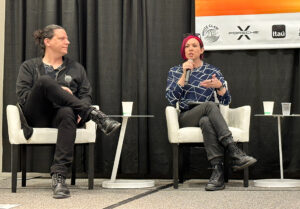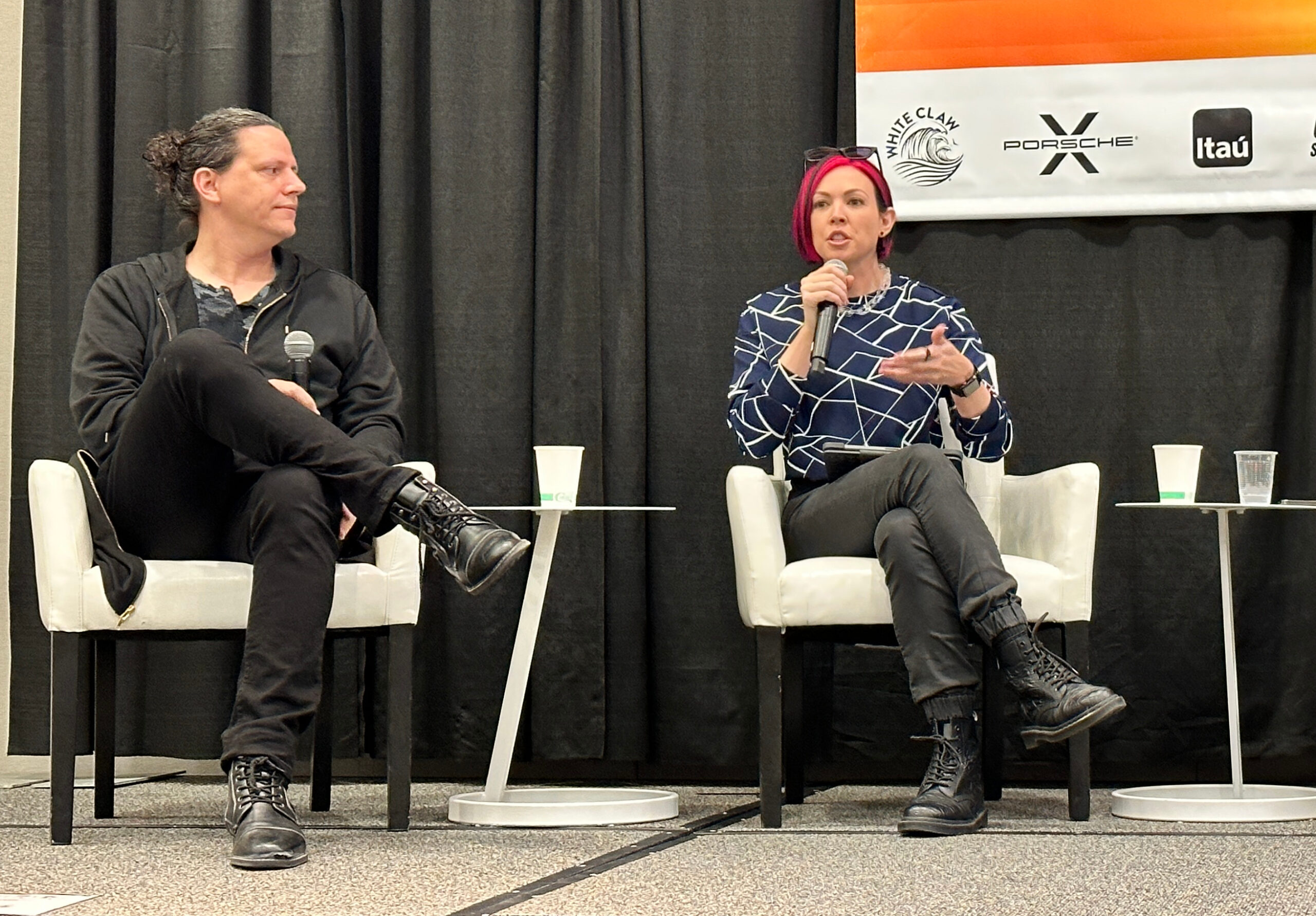In a SXSW panel moderated by Bill Hochberg, music industry experts contemplated the role of artificial intelligence in the creation of songs.
Hochberg, a specialist in music and media law, said that the very day of the session in Austin, the US Copyright Office “issued its official guidance on AI music after a case involving a graphic novel author. She used an AI to come up with the illustrations, but the court said no, you can’t do that: it’s not copyrightable. So today, for clarification, the Copyright Office said copyright is created for the protection of humans.”
He went on to explain the purpose of copyright law. “Ultimately its purpose is to generate a robust communication and flow of ideas of creative output for society. The way to do that is create incentives for creators to make a living at it.”
Daniel Rowland, an LA-based audio engineer with a Masters degree in Music Technology, talked about the insertion of AI into the process of making music. His company has pioneered AI mastering. He explained that “Mastering is a kind of polishing of the final version, the final mix of the song. When this started 9 years ago – I was the audio engineer who crossed the line and worked with them – people were throwing stones at me for years about that because AI was being involved in the music production process. AI has crept earlier and earlier into the creation process to the point of the generation of the idea. The target’s off our back now, but this is what people are concerned about, and rightfully so.”
“A lot of people think of AI as this big, scary amorphous thing in the background,” said Dani Deahl, Head of Communications at BandLab. “We have to take a step back and realise that every new technology was something we were pretty scared of. At one point the guitar was a technology, and piano was a technology. We’ve moved through iterations of technology and come out on the other side better for.” I found her analogy less than calming, as AI threatens to take music creation entirely out of human control, whereas new instruments were merely a modification of existing means of making sound.
One well-used item in the repertoire is a drum machine, which is often used to replace bad drummers. “People have been able to use things that had not existed otherwise,” explained Rowland. “You can look at the reverse of turntables and other things where we’ve taken technology and spun it a different way. The impact it has on the samples industry is super-fascinating. Instead of trying to complete a song or maybe make some small iteration of that – the generation of the loops and the drum samples, the piano and all that kind of stuff – you can then take that and iterate upon that is actually disrupting that space as well.”
Deahl talked about LogicPro, a digital audio workstation. “There’s an AI drummer in LogicPro which is quite useful for people who don’t have access to a live drummer. You can select a persona like something from a grunge band in the 90s and you can just paint in the drums on he track. It will make sure every fill is different at the end of every bar, the velocities for all the hits are different.”
“What really becomes fascinating,” responded Rowland, “is when we are sculpting samples out of the ether. It’s not something where we’re creating a note that’s triggering an existing sample, it’s where we’re creating a drum sound that has never existed before. You can then go and get content that’s going to fit with that sound you’ve created; that really get’s interesting when you start to look at how people are going to be able to create music. It’s happening now!”
Photo by C Cunningham (l to r): Daniel Rowland, Dani Deahl

